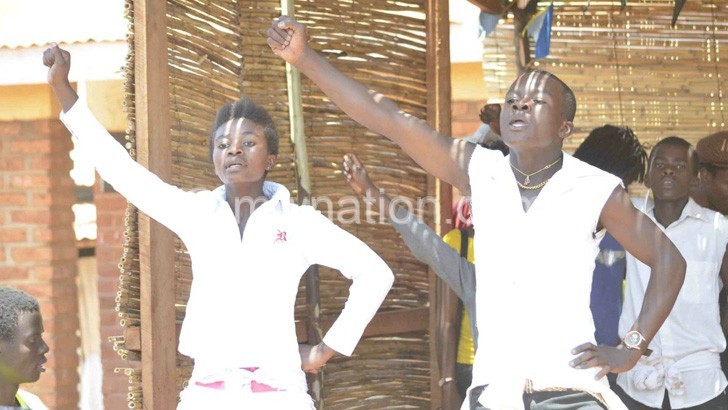Festival gives Dzaleka refugees joy, hope
Scores of people converged at Dzaleka Refugee Camp in Dowa on Saturday for the Tumaini Festival, an annual celebratory event for the refugees.
Tumaini, Swahili word for hope, seeks to bring joy, hope and allow refugees at the camp to minimise the trauma that comes with fleeing home and to forget about the persecutions that forced them to flee.
The camp was set up in 1994 and is home to about 20 000 refugees from the Democratic Republic of Congo (DRC), Burundi, Rwanda, Somalia, Ethiopia and South Sudan. Previously, it was a prison.
The camp has hosted the Tumaini Festival since 2014, featuring music, poetry, acrobatics and traditional dances. The refugees also exhibit food and art from their respective countries.
The festival presents an opportunity for refugees to share aspects of their lives with and sell their artwork to visitors.

During Saturday’s event, several local artists, including Faith Mussa, a women traditional dance group from Dowa and Tigris participated. There was also music from Zambia.
United Nations Higher Commissioner for Refugees country representative Monique Ekoko said refugees were people like anybody else, deserving fun and interaction with people from outside the camp.
She appreciated the other challenges the camp was facing, stressing the festival solved some of them and promoted entrepreneurship among refugees.
Said Ekoko: “It also promotes Dzaleka itself as a place of unity, peace, coexistence and harmony among refugees and Malawians. We are here today to celebrate with them and have fun.
“We want them to know that we care for them and that is the reason we are here this time to interact with them, see their crafts and support them so that the festival changes their lives for the better.”
She said the festival would boost refugees’ financial muscle as they sell a number of items during the event.
The Tumaini Festival started after it was noted that the refugees at the camp lacked a social event to enable them have fun and interact with other people.
Tresor Mpauni, popularly known as Menes la Plume, the founder of the festival said the festival’s vision is to bring lighter moments to the camp.
The 33-year-old Congolese slum poet said he came to Malawi in 2008 and felt he was going to die because of what he described as hardships in the camp.
“It was hard to cope with life and I could see myself dying in the next three days after my arrival in the camp. Nothing made sense and life was tough. I struggled to get almost everything,” he said.
After developing a number of concepts on how he could improve the situation in the camp, he started the festival in November 2014.
Since then, the event has been attracting people from within and outside the country.
Mpauni said in the first two years of its existence, the festival has achieved its purpose.
He said such an event could continue bringing joy and hope and allow people to reduce the trauma and forget about problems that led them to flee their countries.
“We have a lot of conflicts here in the camp. Refugees here need an avenue to enjoy artistic expression, separating them from difficulties of their lives in their day-to-day lives,” said Mpaumi.
Director of tourism in the Ministry of Civic Education, Culture and Community Development, Elizabeth Gonani-Chindebvu, thanked organisers of the event for what she called a brilliant idea “that will go a long way in changing lives of many in the camp.”
She said the festival would bring hope and remind refugees and the surrounding communities that they are one.
“I am overwhelmed with the response people have given both within and outside the camp. This shows that as human beings, we care for one another,” said Gomani-Chindebvu. n





